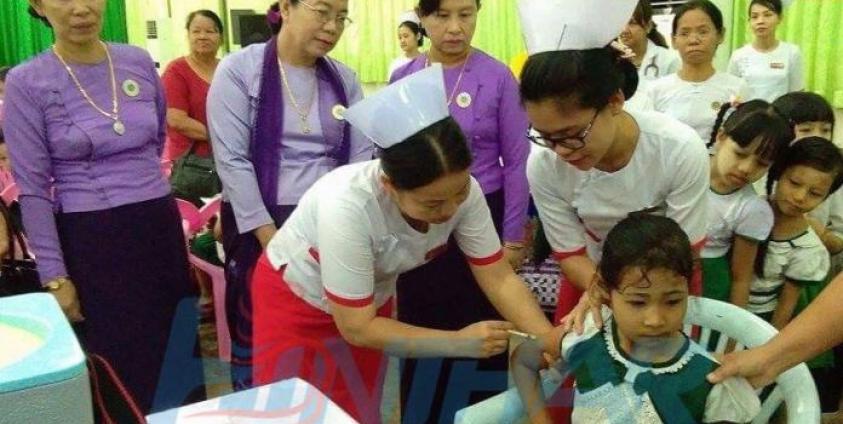Kayin (Karen) State is seeing a rash of Japanese Encephalitis cases this year, prompting a wide-scale vaccine roll out, public health officials say.
“Kayin State is one of the areas most affected by Japanese Encephalitis,” said Dr Tun Min, head of the Kayin State Public Health Department. “Five-year-old children have been infected the most.”
The severe, mosquito-borne virus causes brain inflammation and is endemic to many Southeast Asian countries. Between 30 and 50 percent of patients suffer permanent neurological or psychiatric damage following an infection. Some lose the ability to speak. There is no treatment for the disease, which is vaccine preventable.
In 2016, Kayin State noted a total of 51 Japanese Encephalitis cases. Three patients died. A total of 123 suspected cases have been reported up to October this year, with 35 infections and four fatalities recorded. The reason for the increase in recorded cases is not clear.
Hlaingbwe township has borne the brunt of this year’s uptick, according to records from the state public health department.
In order to try and curb the infections, the state public health department is planning to immunize around 500,000 residents, including over 300,000 students and over 150,000 people from 200 rural villages as part of a nationwide Japanese Encephalitis vaccination campaign that kicked off this week.
“My two children have been vaccinated at their school, but I don’t know the details about the disease,” said Ko Saw Aye, a Kayin State resident. “I want them [the authorities] to raise awareness by telling parents about the disease and the dos and don’ts. Still, since this is a disease prevention I sent my children to get their regular vaccination as well as vaccination [against Japanese encephalitis].”
The public health department has said it will also provide give financial assistance and inoculation supplies to ethnic armed organizations to provide vaccines to around 20,000 children living in 227 villages that are out of the government’s reach.
The first phase of the vaccination drive will run from November 15 to 23 and the second will start in December.



